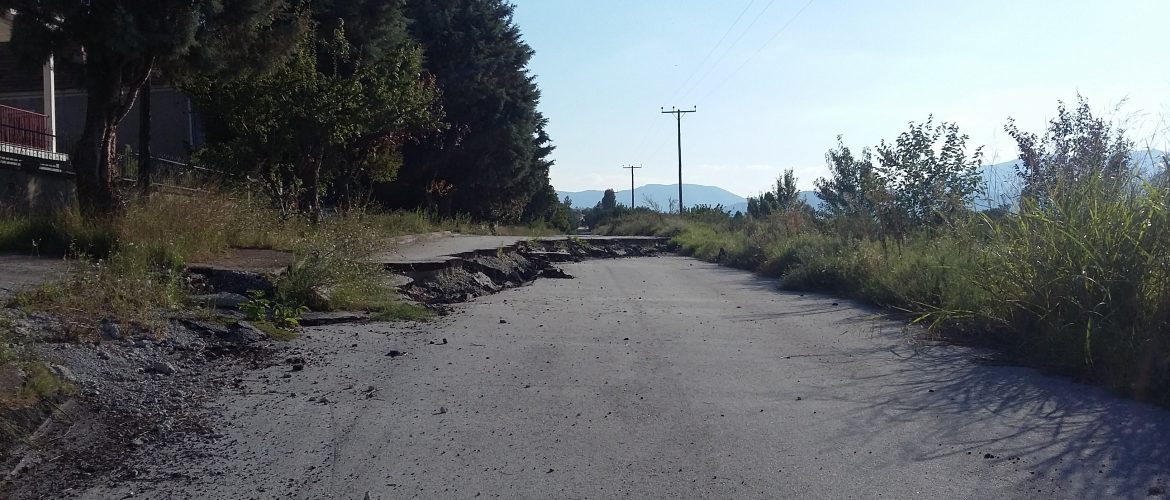On June 4, 2021, Nikos Mantzaris participated in the event “Lignite Phase Out – A Policy Choice at What Cost?”, which was organized, on the occasion of the World Environment Day, as part of the Postgraduate Course “Spatial, Economic, Social and Legal Dimensions of Development and the Environment of the Mountain Areas”, of the National Technical University of Athens. The professors hosting the event were Efthimios Bakogiannis, Assistant Professor at the NTUA, Secretary General of Spatial Planning & Urban Environment of the Ministry of Energy and Environment, and Natasa Stratigea, Professor of the NTUA.
The aim of the event was to create a forum for dialogue and interaction on the effects of the lignite phase-out in the Region of Western Macedonia. Representatives of the academic community, local authorities and the civil society participated. Specifically, the discussion was opened by Konstantinos Mousouroulis, Coordinator of the Just Transition Development Plan of Greece, who made an introductory presentation. Other participants in the structured discussion, which was based on a Focus Group methodology were: Leonidas Vatikiotis, Dr. Economist and Journalist, Dimitrios Kaliampakos, Professor at the NTUA and Coordinator of the MPS “Environment and Development of Mountainous Areas”, Giannis Kapageridis, President of the Department of Mineral Resources of the University of Western Macedonia, Kasapidis Georgios, Governor of Western Macedonia, Kianas Stergios, Deputy Governor for Transition Development Planning and President of the Technical Chamber of Greece – Department of Western Macedonia, Maloutas Lazaros, Mayor of Kozani, and Plakentas Panagiotis, Mayor of Eordea. The discussion was moderated by Vasiliki Krommida, Spatial and Urban Planner, PhD Student at the NTUA.
Participants were asked to answer four questions regarding the main reasons that led to the decision to phase out lignite, the relationship between lignite monoculture and unemployment and the unfavorable working reality Western Macedonia faces, the challenge of land restoration and development, as well as and the energy-related challenge of changing the country’s energy mix.
In his response, Nikos Mantzaris, among others, stated that the environmental and climate arguments for phasing out lignite that have been put forward for years had failed to convince the relevant authorities, and change occurred only when the economic deadlock of lignite activity was demonstrated, through the presentation of the huge losses it had created and would create in the future, as a result of EU climate policies with an emphasis on the rising cost of CO2 rights.
As far as the unemployment is concerned, he provided data on the situation of the region in relation to the rest of the European Union and its unfavorable ranking, while highlighting its obvious correlation with lignite monoculture. In fact, according to official data, unemployment will worsen further in the next decade, which is why the productive activities that will be selected are very important.
Regarding the next day of the region and its productive model, Nikos Mantzaris said that it should be multidimensional, based on all five development pillars mentioned in Greece’s Master Plan. It should not be based only on energy, but energy maintaining its key role in Western Macedonia is a perfectly reasonable choice. Nevertheless, no emphasis should be placed on fossil gas. Apart from the fact that its use conflicts with the climate neutrality target, it is an imported product, with volatile prices, which increases the country’s energy dependence. On the contrary, the weight should be on various forms of Renewable Energy Sources, as well as on energy storage, besides its production. Greece, in fact, could provide know-how to the Balkans on these issues and Western Macedonia could become their storage hub. Also, giving emphasis on small-scale investments, such as the non-profit energy communities of municipalities and/ or citizens, can also offer benefits.
You can watch the whole event (in Greek), here:



